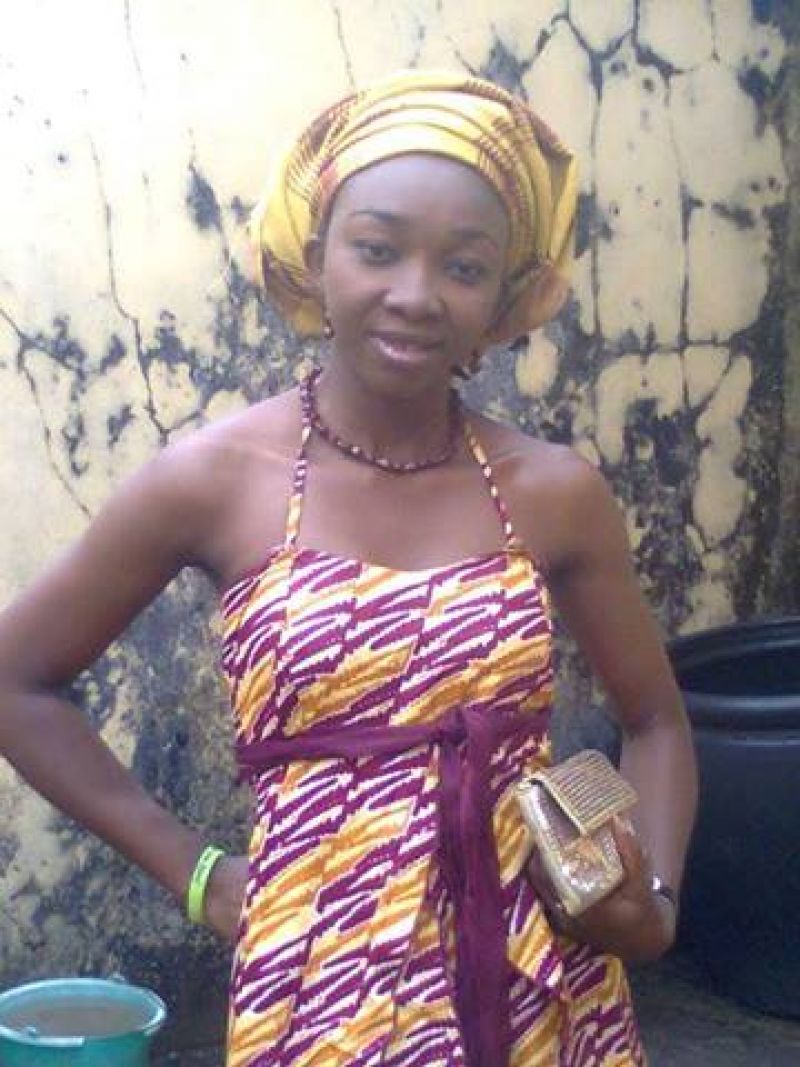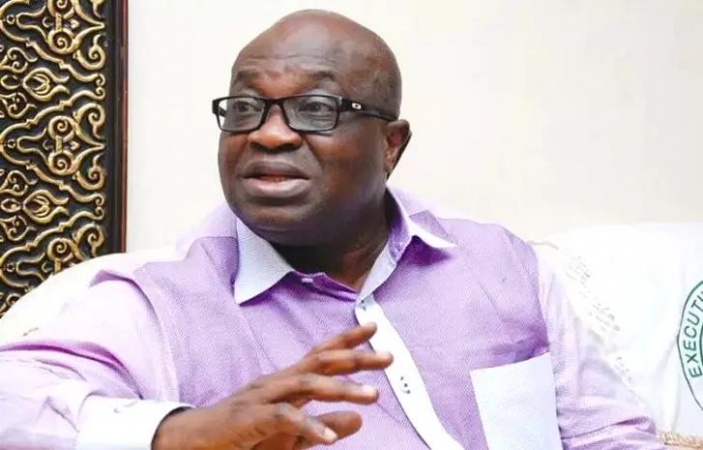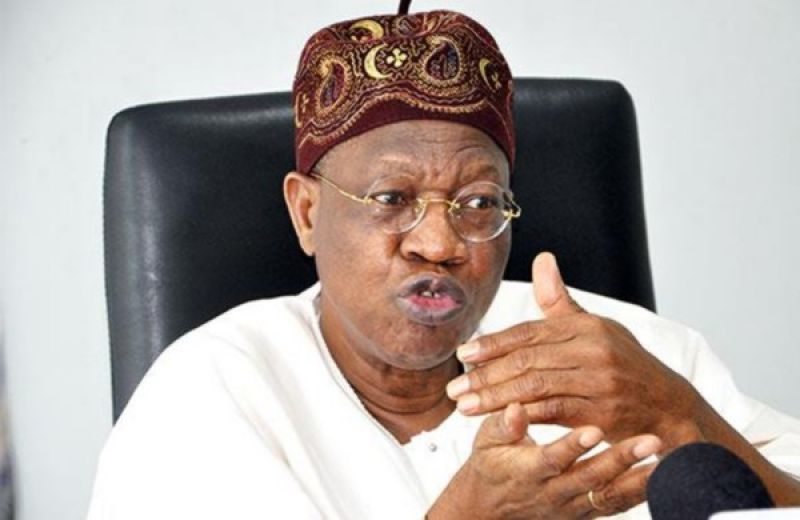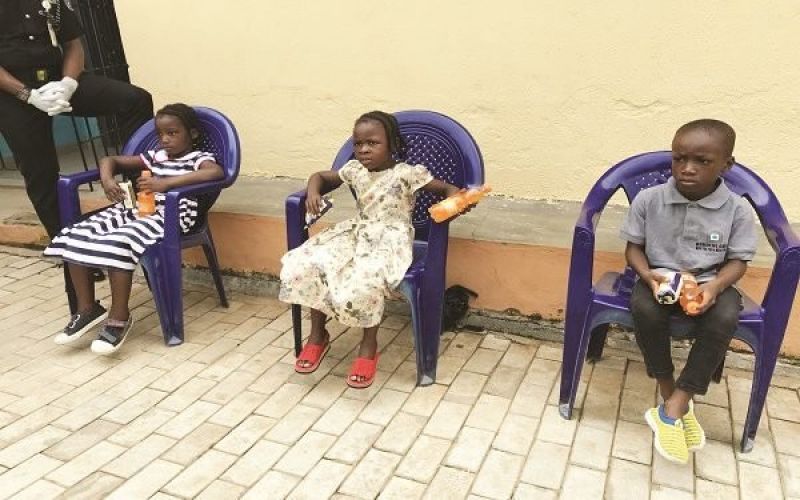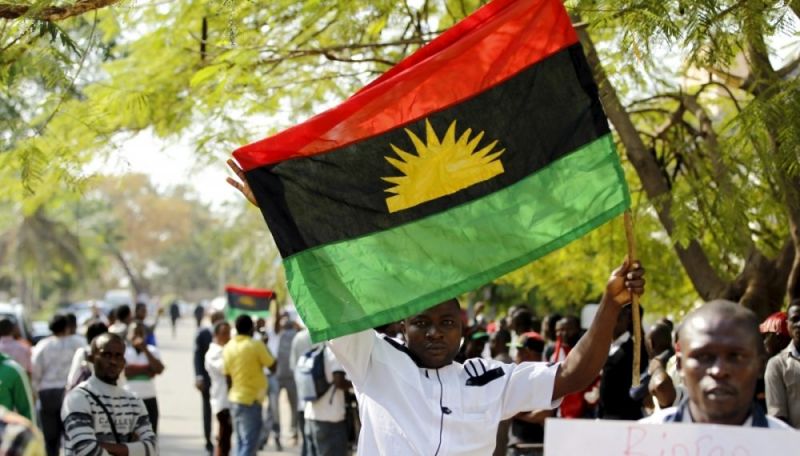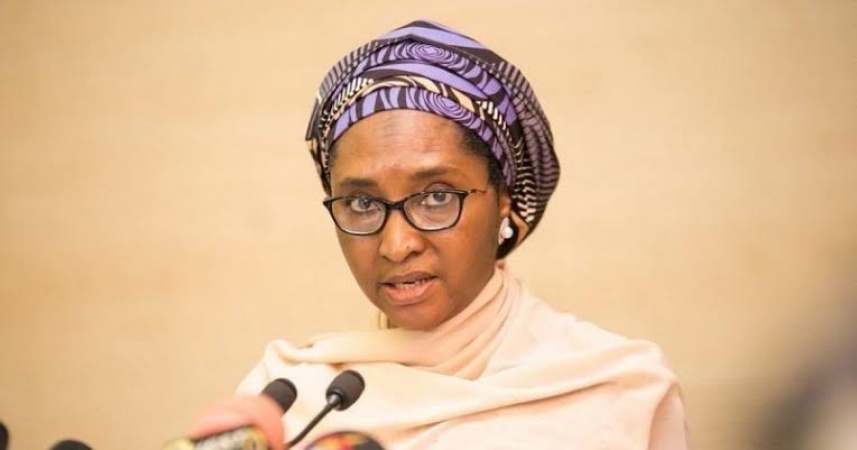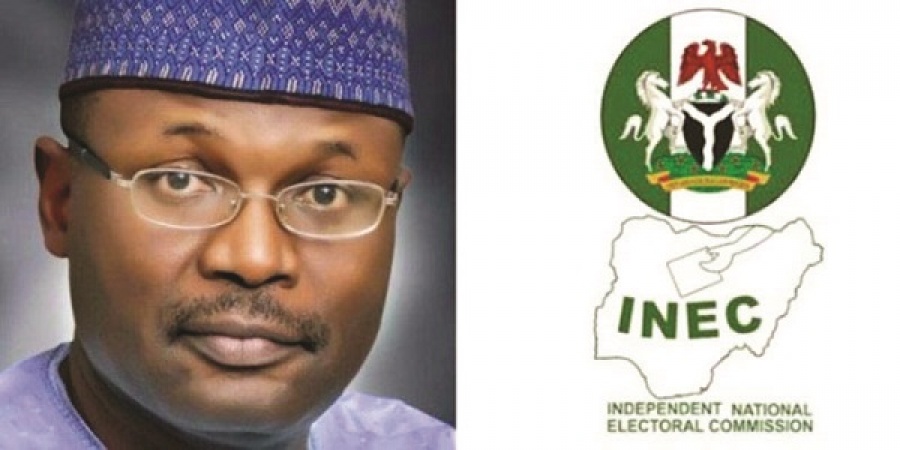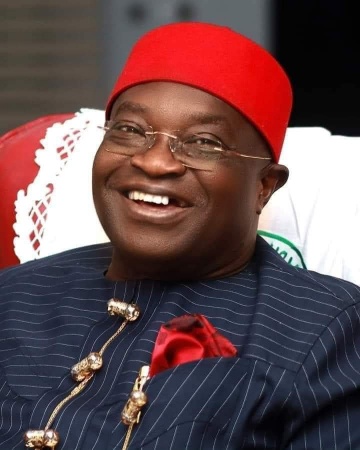Don’t make the Biafrans remove their shirts… (1)
Posted by Uche Ezechukwu | 8 years ago | 5,810 times
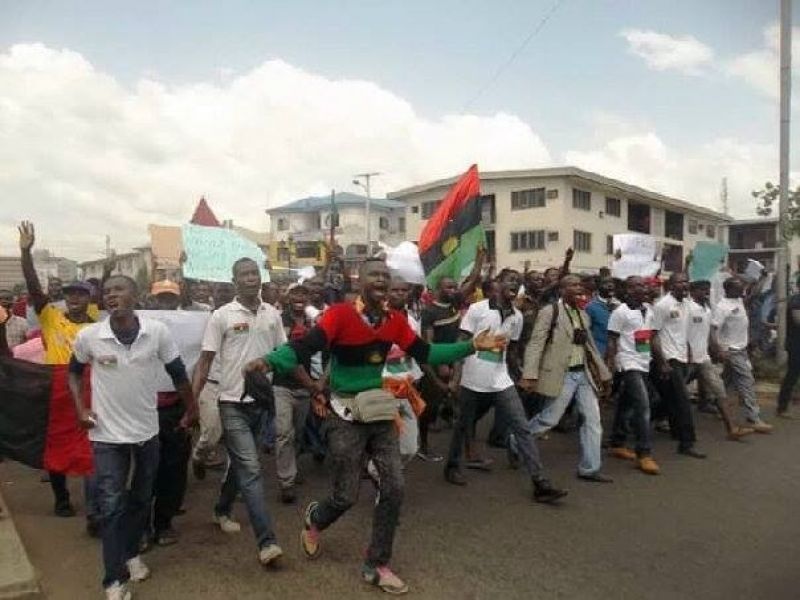
It is an old story now, but its age does not render it less deplorable or less nauseating. Last February 9th, hundreds of Nigerian youths and activists, massed under the auspices of the Indigenous People of Biafra (IPOB), which has been engaged in non-violent protests, since last October, in demand of the release of their leader, Nnamdi Kanu, who has been detained by Nigerian security authorities, at the premises of a school in Aba, Abia State. According to them, they had assembled for a prayer meeting, in search of divine intervention for their efforts, which seemed not to have yielded much dividends, otherwise.
The gathering might have had other items on its agenda, but the fact remained that the protesters had the right to peaceful assembly, as guaranteed them by the constitution. In the same way, security officials also had the right – even the duty – to observe what they were doing, to ensure that no crime was committed in the process. From all I have heard and read about the gathering, there was no indication that any of the young people carried as much as a pen-knives, knowing as they did, that it would be futile to offer any excuses to the security officials who had been rankled by their non-violent protests.
It is not improbable that at such a huge gathering, there is always the possibility that the mobs could get over-excited and might even get restive along the line. If such restiveness occurred – and one is not saying that it did – its risk capability would have been very limited, as in any case, the IPOB activists were not armed – and had never been – as Nigerian security officials obviously know. In every responsible and civilized society of the world, a restive non-violent crowd is usually reined-in with a non-lethal force, commensurate to the level of their nuisance factor.
But what reportedly happened that day obviously at Aba proves that Nigeria cannot seek to be counted amongst such responsible and civilized societies of the world. Nigerian armed security officials descended on the crowd of unarmed and defences citizens and sprayed them with volleys of live bullets. When the smoke and acrid smell of gunpowder cleared, ten vibrant young Biafrans lay dead, while about 50 more sustained injuries, several of them, life-threatening. Any other society would have used tear gas, truncheons, batons, and even rubber bullets to quell such riots, if any. But that did not happen; the central authority in Nigeria had got used to treating Igbo people like game in the reserve, on whom they routinely perform their target practice.
A few weeks earlier, troops had also shot at and killed several unarmed Biafran demonstrators at Onitsha and other places and nobody was queried or sanctioned. And so, why would the ordinary zombie-like rifle men sent out on the range not believe that it is not justified to kill Biafran people. That was the trend that had started a long time ago and had always been tolerated, rationalized and even justified.
Four days after the Aba Massacre, President Buhari, who has never uttered a whimper about the serial massacre of unarmed Igbo youths, rolled out the red carpet to eulogize the late Murtala Muhammed, a disastrous war commander during the civil war, and whose most remarkable shibboleth was the massacre of over 2000 unarmed men and boys at Asaba in 1968. The timing for the Nigerian leader to extol his colleague in the war, when and where genocide was visited on hapless Biafrans, was striking. Four days after Biafran youths were massacred at Aba, Buhari would, among other things, describe Murtala Muhammed in very glowing terms.
According to Mr President, “…by the time Murtala was given command during the civil war, the federal side was on the defensive. The rebels had over-run the then Mid-West, and reached as far as Ore, just 100 miles from Lagos. By dint of sheer bravery, improvisation and resourcefulness, he mustered a rag-tag group of soldiers, integrated them into an entirely new division, knocked them into fighting shape, recovered Mid-West and ventured across the Niger. Alas, there were terrible casualties on both sides.”
If PMB had not mentioned the pogrom at Asaba, why would he or any of his people ever mention the Aba massacre? The massacre of the Shi’ites at Zaria during a confrontation with the military attracted an international uproar, as well as a prompt reaction from the authorities, but the serial massacre of Biafran youths have not attracted even a whimper of condemnation, proving that the Biafrans have no one to look up to, except to themselves and God.
Since the so-called Biafran protests began in the late 1990s by MASSOB and aggravated by IPOB with the growing internationalization of its naughty message through Kanu’s Radio Biafra, the Biafran activists have become more and more daring. Yet, their distinguishing factor has remained the struggles at the non-violent level, having found inspiration and wisdom in the non-violent revolution of Mahtama Ghandi of India. This doctrine of no-violence has been so much adhered to that even when one of their factions, two years ago, ‘stormed’ the Enugu Government House, it did so, even without a catapult.
The non-violent disposition of this group is deliberate, well intentioned and very much known by the federal government and its agencies, yet it would condone its security forces opening fire on an unarmed, defenceless people. Remarkably, the world is not crying out in indignation, even though when a similar thing happened in Soweto, South Africa, in 1976, the world had stood still. That state of affairs must have necessitated the new, but very dangerous, thinking among the Biafran activists, who have declared that they would go on a self-defence mode, as from the 10th of February.
Ndigbo claim that it is only a tree that would see a man coming to hew it down with an axe, and stand still. Any living object would naturally react when threatened, in ways that it has been adapted to protect, or even defend, itself. The more developed a being is, the more elaborate and sophisticated its self-defence mechanism. The right to self-defence is, therefore, inalienable and is provided for in the statute books of every society or nation on earth. This right is recognized in the Article 51 of the United Nations charter on Universal Rights. Incidentally, Nigeria and every other African nation is a signatory to that charter. Inherent in the right to self-defence is that when any person or group of persons, acting within their rights, are denied the protection of a supervisory authority, they would be left with no other alternative than to seek the ways and the means to protect themselves.
Yet, every responsible person who has the ears of IPOB and MASSOB must join in dissuading them from arming themselves as they have pledged to do, just as Dr Ezeife and other wise people have warned, that they would be giving their detractors the justification they had been seeking to do them in finally. I am one of those who insist that their decision to bear arms is ill-advised and premature; I will amply give my reasons in the following parts of this piece.
Meanwhile, I wish to remind Nigerians and the world that Igbo people have a character trait of being slow to anger and of not being easily provoked to a fight. But, once they are provoked, they, like Okonkwo of the Things Fall Apart, do not usually look back. It has been said – and proven – that, once an Igbo person has been provoked into a fight and he removes his shirt, he is not likely going to put it back on, without throwing a punch. So, nobody should make the Igbo man remove his shirt again. He is now wiser, richer, better-connected and more sophisticated.
(To be continued)
Readers Comments
comment(s)
No comments yet. Be the first to post comment.
